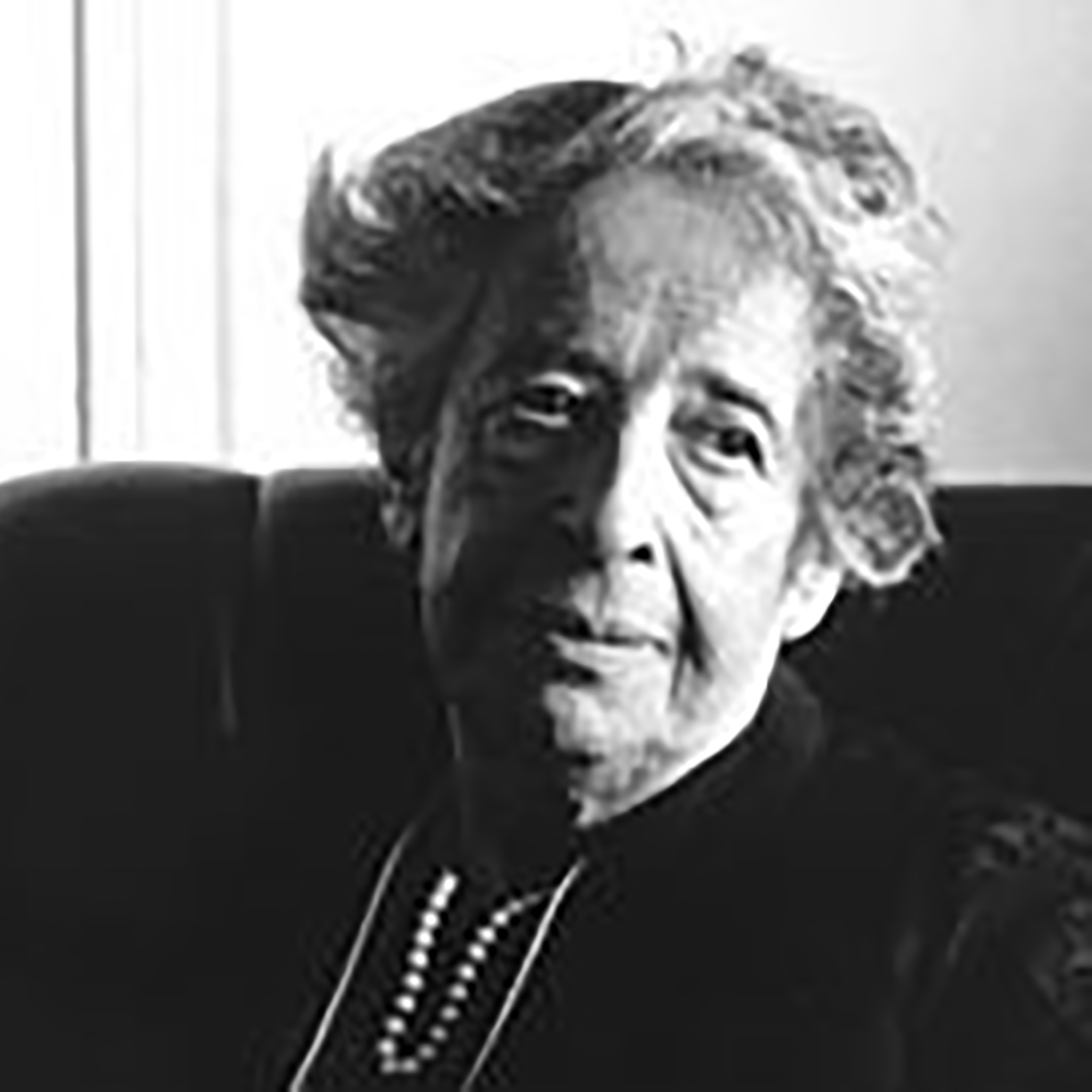Frases célebres de Hannah Arendt
Between Friends: The Correspondence of Hannah Arendt and Mary McCarthy, 1949-1975
Traducción: Miguel Candel.
Con referencia bibliográfica
Fuente: "Eichmann en Jerusalén" (24 de julio de 1963, carta a Gershom Scholem), en Una revisión de la historia judía y otros ensayos. Barcelona, Paidós, 2005, página 145.
Solo el bien tiene profundidad y puede ser radical."
Traducción: Miguel Candel.
Con referencia bibliográfica
Fuente: "Eichmann en Jerusalén" (24 de julio de 1963, carta a Gershom Scholem), en Una revisión de la historia judía y otros ensayos. Barcelona, Paidós, 2005, página 150.
Frases de hombres de Hannah Arendt
“Los hombres, aunque han de morir, no nacieron para morir, sino para innovar”
Con referencia bibliográfica
Eichmann and the Holocaust
Hannah Arendt: Frases en inglés
Speaking of her book The Human Condition, as quoted in Hannah Arendt: For Love of the World (2004) by Elisabeth Young-Bruehl, p. xxiv.
"Lying in Politics"
Crises of the Republic (1969)
Part 3, Ch. 10, § 2.
The Origins of Totalitarianism (1951)
Part 3, Ch. 1 § 1.
The Origins of Totalitarianism (1951)
The New York Review of Books interview with the French writer Roger Errera (1978)
The New York Review of Books interview with the French writer Roger Errera (1978)
On the subject the banal normality of villains. Source: Eichmann in Jerusalem: A Report on the Banality of Evil, published in 1963. As quoted by Scroll Staff (December 04, 2017): Ideas in literature: Ten things Hannah Arendt said that are eerily relevant in today’s political times https://web.archive.org/web/20191001213756/https://scroll.in/article/856549/ten-things-hannah-arendt-said-that-are-eerily-relevant-in-todays-political-times. In: Scroll.in. Archived from the original https://scroll.in/article/856549/ten-things-hannah-arendt-said-that-are-eerily-relevant-in-todays-political-times on October 1, 2019.
Eichmann in Jerusalem (1963)
On the subject bureaucracy as a means of totalitarianism. Source: Eichmann in Jerusalem: A Report on the Banality of Evil, published in 1963. As quoted by Scroll Staff (December 04, 2017): Ideas in literature: Ten things Hannah Arendt said that are eerily relevant in today’s political times https://web.archive.org/web/20191001213756/https://scroll.in/article/856549/ten-things-hannah-arendt-said-that-are-eerily-relevant-in-todays-political-times. In: Scroll.in. Archived from the original https://scroll.in/article/856549/ten-things-hannah-arendt-said-that-are-eerily-relevant-in-todays-political-times on October 1, 2019.
Eichmann in Jerusalem (1963)
“Real power begins where secrecy begins.”
Part 3, Ch. 12, § 1.
The Origins of Totalitarianism (1951)
On the subject progress. Source: Interview with French writer Roger Errera, 1974. New York Review of Books. As quoted by Scroll Staff (December 04, 2017): Ideas in literature: Ten things Hannah Arendt said that are eerily relevant in today’s political times https://web.archive.org/web/20191001213756/https://scroll.in/article/856549/ten-things-hannah-arendt-said-that-are-eerily-relevant-in-todays-political-times. In: Scroll.in. Archived from the original https://scroll.in/article/856549/ten-things-hannah-arendt-said-that-are-eerily-relevant-in-todays-political-times on October 1, 2019.
On the subject violence and power. Source: On Violence, published in 1970. As quoted by Scroll Staff (December 04, 2017): Ideas in literature: Ten things Hannah Arendt said that are eerily relevant in today’s political times https://web.archive.org/web/20191001213756/https://scroll.in/article/856549/ten-things-hannah-arendt-said-that-are-eerily-relevant-in-todays-political-times. In: Scroll.in. Archived from the original https://scroll.in/article/856549/ten-things-hannah-arendt-said-that-are-eerily-relevant-in-todays-political-times on October 1, 2019.
